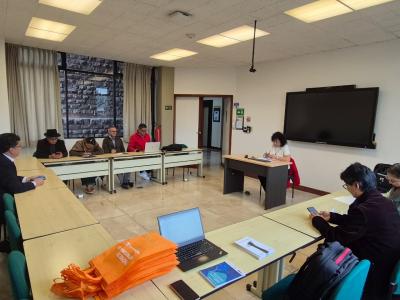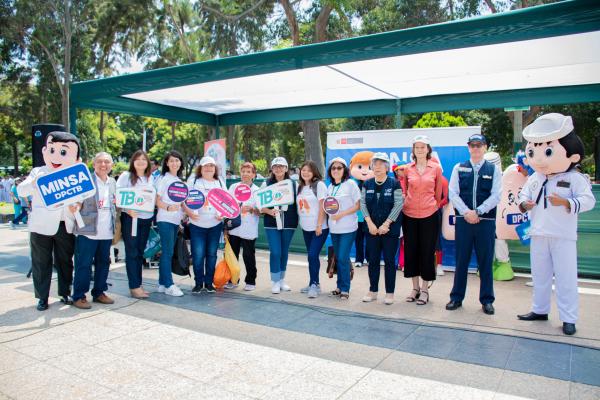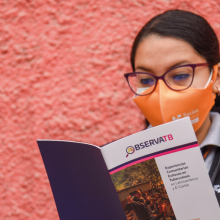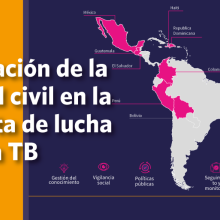This month marks the fifth anniversary of the creation of the social observatories on tuberculosis (TB) in Latin America and the Caribbean. These spaces bring together civil society organizations committed to actively contributing to the national and regional response to this disease.
Between 2019 and 2022, Partners In Health implemented the multi-country project OBSERVA TB, with funding from the Global Fund. The initiative promoted the creation of observatories in eight countries: Bolivia, Colombia, Dominican Republic, El Salvador, Guatemala, Haiti, Mexico, Peru and the Dominican Republic, in addition to a regional social observatory for Latin America and the Caribbean. To this end, a roadmap was drawn up for the implementation of the observatories and technical guidelines and other documents were prepared to support their creation and operation. In addition, the process was accompanied in each of the countries to ensure the dynamics of this mechanism of organized civil society.
“The TB social observatories watch over the right to health and social justice of vulnerable people and communities, and at the same time assist governments in the formulation of public policies from a human rights approach, with cultural relevance, gender perspective and humanized care,” Alberto Colorado, coordinator of the Regional TB Observatory.
This project responded to the recommendations of the Engage TB approach of the World Health Organization (WHO) and the Pan American Health Organization (PAHO). According to this model, strengthening collaboration between national TB programs and civil society required the formation of organized coordination platforms: social observatories.
OBSERVA TB promoted the integration of civil society in the response to tuberculosis, prioritizing a focus on human rights, gender equality and differentiated attention to key populations. Thus, it sought to make policies and services more responsive to the social realities of those who face the greatest barriers to access.

Encuentro de OBSERVA TB en Ecuador para reforzar la participación comunitaria en la respuesta nacional a la tuberculosis.
Foto de SES
A model that inspires new countries
The observatories were organized around six lines of action: public policy advocacy, capacity building, follow-up and monitoring, knowledge management, social surveillance and communication. This structure made it possible to address the social determinants of the disease more effectively.
On July 3, 2020, the creation of TB social observatories was formalized in Peru and Mexico. El Salvador, Dominican Republic, Colombia, Haiti, Guatemala and Bolivia joined later. In each country, these spaces have generated debates, proposals and alliances around issues such as migration, stigma, social protection and legal frameworks specific to TB.
Thanks to their impact, three more countries -Argentina, Ecuador and Panama- have developed social observatories inspired by the OBSERVA TB model, adapting it to their local contexts. This demonstrates the sustainability and relevance of community participation in the fight against tuberculosis, as well as channeling advocacy actions and allowing the representation of civil society and the TB-affected community in decision-making processes and spaces at different levels.
For Óscar Ramírez, former project leader, “it is a joy and a privilege to have witnessed the implementation of the social observatories and the beginning of their activities.”
“Today, after five years, we celebrate their great achievements and the commitment of civil society to improve the response to tuberculosis, with quality and respect for people’s dignity. Let us continue to fight for the elimination of this disease,” he says.



